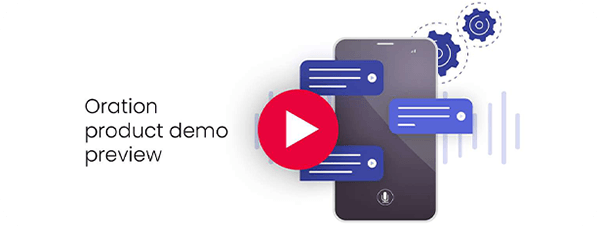Traditional call routing systems that use DTMF menu options rely on your callers to make their best judgement around which is the right option for their specific enquiry. Of course, sometimes this will be a straightforward decision, like when you’re calling to make a payment and the IVR asks you to “press one to make a payment”, but for many customers who have all kinds of needs, this decision really isn’t easy.
Getting through to the wrong agent and being redirected to another call queue is probably one of the biggest causes of frustration among call centre customers and is a huge risk to your customer satisfaction rating. This is where intelligent call routing (ICR) technologies can offer some much-needed help and improvement to your call centre operation and overall customer experience.
Content guide
- What is intelligent call routing?
- Top benefits of intelligent call routing
- How does intelligent call routing work?
- When to know if you need intelligent call routing
- The pros and cons of intelligent call routing
- Unique features of intelligent call routing
- Best practices of intelligent call routing
- Enhancing ICR with AI-powered speech recognition technology.
What is intelligent call routing?
Intelligent call routing is a system used in contact centres to direct incoming calls to the most appropriate agent or department based on predefined criteria. This technology leverages data such as customer information, call history, agent skills and real-time availability to ensure that each call is handled efficiently and effectively. The goal of intelligent call routing is to improve customer experience by reducing wait times and ensuring that customers are connected with the right agent who can best address their needs.
An IVR system that uses intelligent call routing removes the need for the customer to make the decision instead it just simply asks “how can we help”, and automatically identifies the nature of queries and then directs the call to the most suitable outcome. Intelligent call routing uses state-of-the-art technologies such as AI and machine learning algorithms to analyse the input provided by customers against the vast amounts of routing information and data it holds to match the call with the most appropriate resolution available.
Adding another dimension to the process of call routing, it’s important to note that intelligent call routing technologies don’t just rely on the input provided by customers over the phone. Automated ICR routing decisions can take other factors into consideration to help improve the overall customer experience such as a customer’s call history, their account status, issue priority level, customer personality, and any other customer data already captured by business databases.
Top benefits of intelligent call routing
Reduces waiting times.
If calls are being distributed accurately across your team of agents, there’s every chance that your customers will spend less time waiting on the phone. With traditional menu systems, there can often be a backlog of calls waiting to connect with generalist agents because callers aren’t sure which specific options are most suited to their needs. At the same time, your customers aren’t at risk of being transferred to another call queue to start the waiting game all over again.
Eliminates time wastage and lowers costs.
When calls aren’t connected with the most suitable agents, it can take both your customers’ time explaining and your agents time listening and asking questions to establish the nature of the query before transferring the call elsewhere. Essentially, ICR can reduce the overall time agents spend on the phone and lower operational costs.
Improves personalisation and customer satisfaction.
Intelligent call routing operates by utilising a combination of data analysis, algorithms and predefined rules to efficiently direct incoming calls. When a call is received, the system quickly assesses factors like the caller's identity, previous interactions, the nature of the enquiry and the current workload of available agents.
Using this information, the system then routes the call to the most suitable agent or department. This process can involve skills-based routing, where calls are directed to agents with specific expertise, or priority-based routing, which prioritises high-value customers or urgent issues. By ensuring that calls are handled by the right person at the right time, intelligent call routing enhances customer satisfaction and optimises the performance of the contact centre.
How does intelligent call routing work?
Intelligent call routing operates by utilising a combination of data analysis, algorithms and predefined rules to efficiently direct incoming calls. When a call is received, the system quickly assesses factors like the caller's identity, previous interactions, the nature of the enquiry and the current workload of available agents.
Using this information, the system then routes the call to the most suitable agent or department. This process can involve skills-based routing, where calls are directed to agents with specific expertise, or priority-based routing, which prioritises high-value customers or urgent issues. By ensuring that calls are handled by the right person at the right time, intelligent call routing enhances customer satisfaction and optimises the performance of the contact centre.
When to know if you need intelligent call routing
By recognising these signs, you can determine whether intelligent call routing is the right solution to enhance the efficiency and effectiveness of your contact centre operations.
- High call volumes: if your contact centre is consistently handling a large number of incoming calls, and customers are experiencing long wait times, it may be time to consider intelligent call routing. This system can help distribute calls more evenly and reduce bottlenecks.
- Frequent call transfers: if your agents are regularly transferring calls to other departments or specialists, it’s a sign that your current routing process isn’t matching customers with the right agent from the start. Intelligent call routing can minimise these unnecessary transfers by directing calls to the appropriate person initially.
- Diverse customer needs: when your customer base has varied and complex needs that require different levels of expertise, intelligent call routing can ensure that each customer is connected with an agent who has the specific skills to address their issue effectively.
- Low first-call resolution rates: if your contact centre struggles with low first-call resolution rates, meaning issues are not being resolved during the first interaction, intelligent call routing can improve these rates by matching calls to the best-qualified agents.
- Increasing customer complaints: a rise in customer complaints about long wait times, multiple transfers or inadequate service may indicate that your current call handling process is falling short. Intelligent call routing can enhance customer satisfaction by ensuring quicker, more accurate service.
- Need for personalised service: if your business aims to provide a more personaliszed customer experience, intelligent call routing can be an effective tool. By leveraging customer data, it can direct calls to agents who are familiar with the customer's history and preferences.
- Complex product or service offerings: when your products or services are complex and require specialised knowledge, intelligent call routing can ensure that customers are connected with agents who have the necessary expertise to assist them.
- Scalability requirements: as your business grows, the complexity of handling customer interactions will increase. Intelligent call routing provides the scalability needed to manage this growth efficiently, ensuring that your contact centreer remains effective as demand rises.
The pros and cons of intelligent call routing
Pros of intelligent call routing
- Improved customer experience: by directing calls to the most appropriate agent, intelligent call routing reduces wait times and increases the likelihood of first-call resolution, leading to higher customer satisfaction.
- Enhanced agent efficiency: agents receive calls that match their skills and expertise, allowing them to handle enquiries more effectively and reducing the need for transfers or escalations.
- Optimised resource allocation: the system can distribute call volume evenly across agents, preventing overload and ensuring that resources are used efficiently.
- Personalised service: by leveraging customer data, intelligent call routing enables a more personalised approach, addressing customer needs more accurately and building stronger relationships.
Cons of intelligent call routing
- Complex implementation: setting up intelligent call routing requires significant planning, customisation and integration with existing systems, which can be time-consuming and costly.
- Dependency on accurate data: the effectiveness of call routing depends on the accuracy of customer data and agent information. Inaccurate or outdated data can lead to misrouting and a poor customer experience.
- Potential for technical issues: as with any automated system, there is a risk of technical glitches or downtime, which can disrupt operations and negatively impact customer satisfaction.
- Limited flexibility: while intelligent call routing is highly effective for predefined scenarios, it may struggle to adapt to unexpected situations or unique customer needs without manual intervention.
Unique features of intelligent call routing
Data processing
ICR uses a range of caller input which is provided to your IVR and can include anything from the nature of a query to unique account or customer details. This data is used to automatically identify a caller’s reason for making the call (caller intent) before determining the best routing option. Needless to say, the more advanced your IVR system is when it comes to capturing caller input, the more precise your ICR will be, which is why many call centres are shifting from DTMF menus to IVR solutions that use AI-powered speech recognition technology.
Caller data and historical data are also important sources of information for the ICR function, but this refers to more static information compared to caller input. While caller data includes phone number identification, historical call data includes past purchases, support history and other captured personal information. Caller input, caller data, and historical data are processed by ICR simultaneously to decide the best outcome for the caller’s needs. Best practice is to use the spoken caller intent to decide what the caller requires and the additional data to reduce or remove the need for follow on questions.
Maximising the use of automated resolution processes
Call centres use features like voice banners and self-serve options to reduce the number of calls unnecessarily reaching live agents. ICR opens the opportunity to dramatically increase the number of targeted voice banners call centres use for common query types because they can establish the precise nature of a call. In other words, while DTMF systems are limited to generic banners related to restrictive menu options, a call centre empowered with ICR will be able to direct customers to all kinds of specific relevant information based on their intent such as product notices, delivery backlogs or the opening hours for a specific store.
Similarly, by understanding the true nature of a call, ICR solutions can successfully direct more calls to self-serve options (like paying an account balance) in circumstances where customers might not otherwise have the confidence to choose the option by their own volition.
Sharing data with live agents
Having captured and processed useful customer information automatically, ICRs can share this information with agents, so customers aren’t repeating themselves and agents can jump straight into resolving the call as soon as they pick up. By making information accessible to agents after routing calls such as customer verbatim (what they said in their own words), call type, and links to customer records, ICR can speed up resolutions and reduce AHT.
Call data analytics
By capturing and dealing with more data than traditional call routing systems, there’s a lot ICR can do to help call centre managers run operations much more efficiently. Reporting on key measurables such as call volumes, duration, common call types, call waiting times, and speed of resolutions could help managers adjust call flows by implementing and tweaking targeted banners, introducing new self-service options for common tasks, and addressing weaknesses in agent training.
Best practices of intelligent call routing
- Understand your customer base: start by analysing your customer demographics, behaviours and common enquiries. This data is crucial for setting up routing rules that align with customer needs, ensuring that calls are directed to the most appropriate agents.
- Implement skills-based routing: assign agents based on their specific expertise and experience. By routing calls to agents who are best equipped to handle particular issues, you increase the chances of resolving customer queries quickly and effectively.
- Utilise data analytics: continuously monitor and analyse call routing performance. Use data analytics to identify trends, improve routing algorithms and adjust strategies based on real-time feedback and historical data.
- Regularly update agent profiles: Ensure that agent skills, availability and performance metrics are up-to-date. This ensures that the system routes calls based on the most accurate and current information, maintaining high efficiency and customer satisfaction.
- Incorporate customer feedback: Gather and incorporate customer feedback to refine routing strategies. Understanding customer experiences with your routing process can help you make necessary adjustments to enhance satisfaction.
- Test and optimise routinely: regularly test your intelligent call routing system to identify and resolve any inefficiencies or errors. Continuous optimisation is key to maintaining a system that adapts to changing business needs and customer expectations.
- Ensure redundancy and backup plans: prepare for potential system failures by having backup routing protocols in place. This ensures that call handling continues smoothly even if your primary intelligent routing system encounters issues.
- Integrate with CRM and other tools: ensure your intelligent call routing system integrates seamlessly with CRM platforms and other customer service tools. This integration allows for a more comprehensive view of the customer, enabling better routing decisions.
Enhancing ICR with AI-powered speech recognition technology
The quality of data that’s available to your ICR system has a huge part to play in how effective your intelligent call routing system will be in directing calls to the best outcome first time. Keeping track of KPIs and call flows will be an important part of refining the machine learning and data processing capabilities to deliver the best outcomes, while seamless integration with other business systems such as CRM applications will also be crucial to the performance of ICR.
Your IVR can also enhance the decision-making capabilities of ICR by gathering deeper insights from your callers using AI speech recognition technology. An IVR that understands why your customers are calling from their natural conversational language can create a more powerful customer service experience, whether it be by asking further questions to increase data capture or by better recognising the many nuances of different caller intents and more accurately matching them with your live agent resources or automated solutions.
Watch this demo to find out how Oration’s cloud-based speech recognition technology could enhance the performance of your call centre in a matter of hours.
By asking a simple open question when answering a call, Oration opens unlimited routing options to ensure every caller reaches the most appropriate outcome the first time. While this has the potential to reduce the number of calls reaching agents and time spent on the phone, it makes life easier for callers who don’t need to match their queries to a restrictive menu structure.
ICR by Oration is highly data-driven, using the information provided by the caller on the phone as well as unique customer data provided by other systems, such as a CRM, to determine the next best action.







